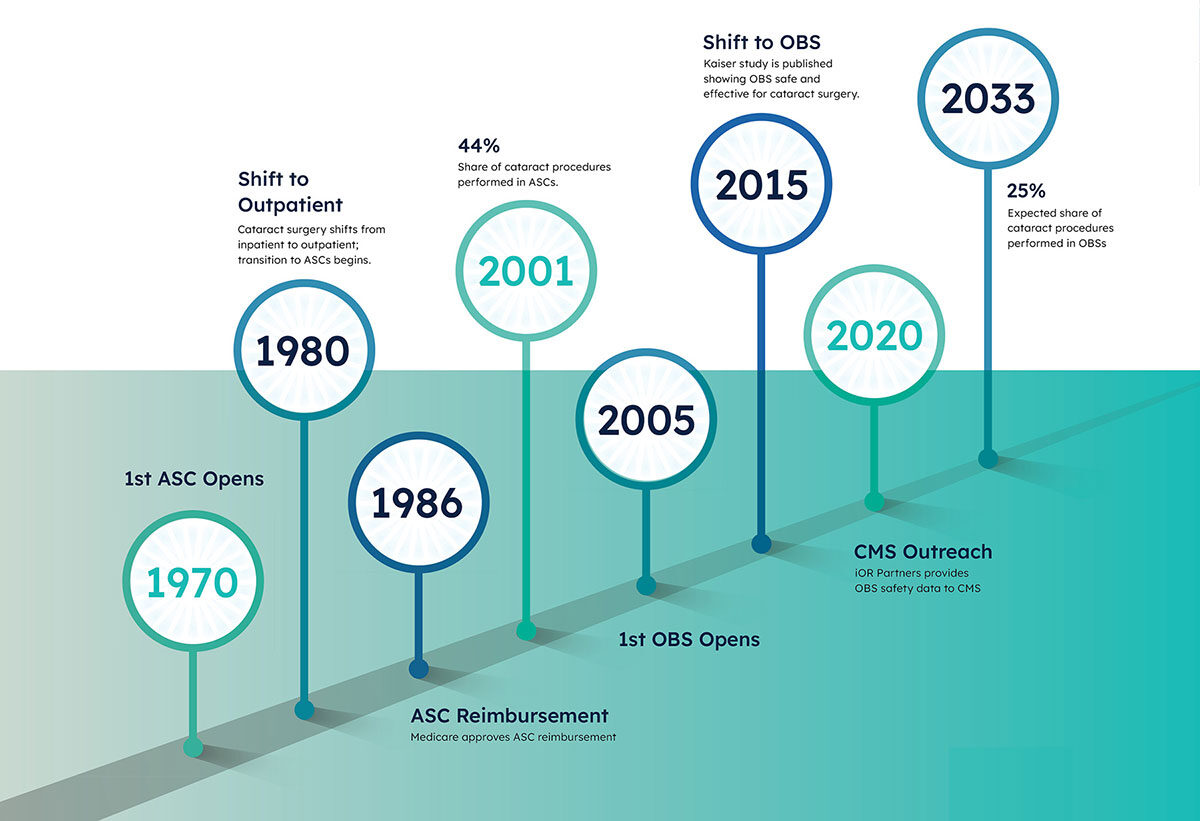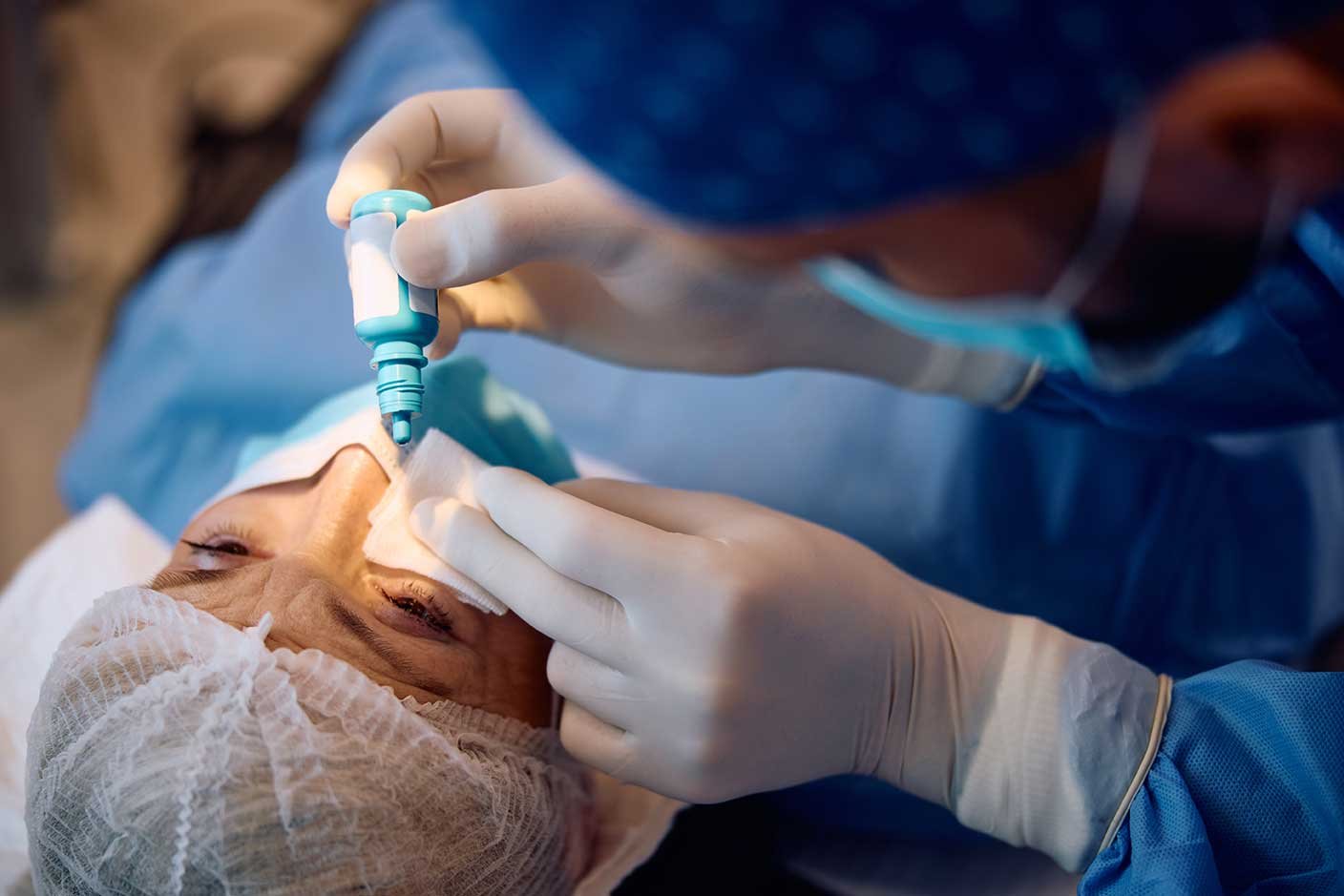The Next Evolution in Ophthalmic Surgery is Here
Office-Based Surgery is the Future
iOR Partners is revolutionizing healthcare by leading the movement towards office-based surgery (OBS). This is a once-in-a-generation change that addresses the needs of Physicians, Patients, and Payers.
An Accelerating Movement
Over 4 million cataract surgeries are performed each year by about 9,000 surgeons. With the aging population, volume is expected to grow by 3-4% annually, reaching six million by 2030. At the same time, many ASCs are deprioritizing cataract procedures in favor of more lucrative procedures, such as orthopedics. This creates a critical supply and demand imbalance for the world’s most commonly performed procedures.
Challenges that highlight the need for a new approach to ophthalmic surgery:
- Provider shortage: As the demand grows, the number of ophthalmic surgeons and anesthesia providers is declining creating a long-term capacity crisis.
- Restricted surgical time: Multi-specialty ASCs are de-prioritizing ophthalmic procedures in favor of those with higher reimbursements. Limited surgical time for ophthalmologists is resulting in a backlog of cases.
- Inefficient workflow: Traveling from the office to the facility for every procedure wastes clinic time and workflow efficiency. Downtime in ASC = wasted time.
- Lack of control and flexibility: Surgeons are required to use the ASC's supplies, equipment, and staff and follow its policies and procedures. Any changes are subject to committees and red tape for approval.

What is Office-Based Surgery?
Any surgical or invasive procedure performed by a licensed physician in a location other than a hospital or ambulatory surgery center. These procedures are typically performed in a surgical suite located within the physician's office and utilize minimal to moderate anesthetics.Ophthalmic Office-Based Procedures:
Cataracts, RLEs, ICLs, Oculoplastics, Retina, Glaucoma, Cornea
Benefits of Office-Based Surgery
Office-based surgery is a once-in-a-generation change that unites physicians, patients, and payers.
Surgeon Controlled
Surgeons are independent from large healthcare systems while offering high-quality care. Autonomy over scheduling and the entire surgical process is a game changer.
Patient Preferred
Patients benefit from more convenient access to care, a comforting environment, and familiar staff, which reduces anxiety on surgery day.
Proven Safe
A growing body of research of over 93,000 cases indicates OBS outcomes match or exceed those in other facilities.
Viability
OBS takes a fraction of the time, space, and cost it takes to build and maintain an ASC and all surgical revenue stays in the practice.
A Natural Evolution to More Efficient Care
The evolution of OBS closely resembles the previous transition from hospital-based surgery to ASC-based surgery. Trends are showing a similar adoption rate for office-based surgery.
Considerations for Office-Based Surgery
There is a lot to consider when transitioning to office-based surgery. Understanding the safety, accreditation, anesthesia, and reimbursements in the OBS environment is important.

Safety & Efficacy
A growing body of research indicates OBS outcomes match or exceed those in other facilities. With 100,000+ successful outcomes, OBS is the embodiment of safe and effective surgery.

Reimbursements
OBS is reimbursed by all major payors including Medicare. When surgery is performed in an office-based surgerical suite, 100% of surgical revenue is retained by the practice.

Anesthesia
OBS suites utilize either oral or IV sedation. The main difference is that the type of anesthesia used is the surgeon’s choice vs. facility protocols.